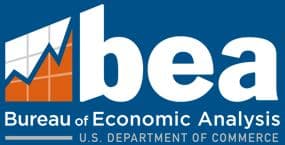WHITE BOARD WORKSHOP
Need More Money to Finance Your Real Estate Projects?
Learn how to find more investors, raise more money, and finance your real estate projects online.
025 Agent Conflict of Interest Not Solved by Education or Training

Dr. Scott Wentland, Bureau of Economic Analysis, U.S. Department of Commerce...

Agent Conflicts of Interest Difficult to Mitigate
It is intuitive to expect that by hiring an agent across town that it may be particularly burdensome for that agent to conduct open houses or to do private showings. The inconvenience of travelling adds to the transactional cost to that agent and so their incentive to market your home is reduced. Picking the wrong agent can extend the amount of time it might take to sell your home, or even reduce the chance of selling at all.
Consistent with the findings of Chad Syverson and Steve Levitt of Freakonomics fame, and contained in NREF podcast #22, Wentland found that agents who sell their own homes sell for around 4% more than they do when they sell their clients’ homes. Working with the principal broker in an agency, and not with an agent, could help resolve this problem. Not unsurprising, perhaps, is that the driving force behind this discovery is the matter of incentives – principal brokers who own or co-own their agencies are more likely to market a client’s home as they would their own. Their incentive to preserve their reputation, and by extension that of their agency, is enhanced because their compensation is dependent not only on their own performance, but on that of their hired agents also.
Leaders of The Crowd
Conversations with Crowdfunding Visionaries and How Real Estate Stole the Show
Discover how laws that gave us crowdfunding were solely meant to finance small companies and yet inadvertently opened the doors to allow you to invest in real estate like never before.
Read the book and listen to the actual conversations.
Neither Education Nor Ethics Training Helps (in their current form)
What is less expected, however, is that education, at least in its current form, does not mitigate the problem. Teaching agents about ethics or adding multiple hours of education to licensing requirements has no impact on ensuring that agents act for their clients as they do when selling their own homes. Only changing the compensation structure for agents makes the difference – and the only time this is seen is when the agent becomes the owner of the brokerage itself. When an agent becomes or is the owner of an office, they now have a stake in the performance of everyone else in the office because they have a share of everyone else’s commissions. This is not true of the sales agent whose only compensation is derived through their own personal sales activity. These agents sell their own properties for around 4% more and keep their homes on the market longer than they do when they sell homes for their clients.
Ethics training is a cornerstone of understanding the agents’ fiduciary responsibility to clients and yet the training currently in place is not solving the issue that agents sell their own homes for more and take longer doing it, than they do for their clients. The only thing that mitigates this failure of fiduciary responsibility is when the compensation structure changes, and the driving factor behind this is the concern that the agency owner has in preserving his own and his company’s reputation.
“Maybe the National Association of Realtors, [the NAR] could think about how could we leverage reputation… to tame the perverse incentives of the real estate agency.”
How to Fund Your Deals
7 Steps to Raising Equity Online
Are Real Estate Agents Worth What They Charge?
One of the broader questions is are we overpaying for real estate agent services? From the compensation structure it seems like it might be – 6% for selling a home seems like it is very steep. Basic economics teaches us that in a competitive market pricing is driven down to close to cost – but we are not seeing this in the real estate agency industry. It is baffling that with 2 million agents in the United States there is almost complete uniformity in pricingstructure across the industry. Looking at it from a different perspective, selling a home for $400,000 takes no more effort than selling a home for $100,000 and yet the compensation is four times as much. For an economist, this quandary makes no sense; the only conclusion that can be drawn is that there is some kind of price discrimination occurring, where those wealthier homeowners are charged significantly more than the less wealthy – but as, either way, this violates the fiduciary responsibility that the real estate agency industry has to its clients, something appears amiss and should change.
Conclusions and Recommendations
1. If in some none monetary way you are a costly to your agent, for example by living across town making it difficult for the agent to reach your home, you are likely going to be a burden to them and it will take 5-10% longer to sell your home or it may not even sell at all. Look for a nearby agent to make it as easy as possible for the agent to pay attention to your home.
2. Be sure to consider a principal broker to represent you and not one of the agents of that office. They have the strongest incentive to preserve their reputation because they are the most closely tied to the performance of the office overall and consequently the most concerned to deliver good performance. They are the ones who will market your home most closely to the way they would market their own home.
3. Understand your agent’s limitations. Do not list with someone who has too many listings; they will likely neglect yours if they are overstretched.
RELATED PODCASTS
330 Matt Ackerson, Founder of Autogrow.co & Master of the Sales Funnel
Last Updated on September 15, 2021 by Dr. Adam Gower WHITE BOARD WORKSHOP Need More Money to Finance Your Real Estate Projects? Learn how to find more investors, raise more…
READ MORE >379 Andrew Lucas, Director of Capital Markets at Trion Properties
Last Updated on September 15, 2021 by Dr. Adam Gower Andrew Lucas, Trion Properties How to Attract and Engage High Quality Prospects to Real Estate Investments The Investor Acquisition System:…
READ MORE >316 Mark Roderick, Attorney, Flaster Greenberg
Last Updated on September 15, 2021 by Dr. Adam Gower NEW BOOK BY ADAM GOWER PH.D. A BRAND NEW WAY TO FINANCE REAL ESTATE …No matter how many investors you…
READ MORE >












